When life throws unexpected challenges our way, it can be hard to find the right words to communicate what's happening. Whether it's a family emergency or a personal crisis, conveying the urgency of the situation while maintaining professionalism is crucial. In this article, we'll explore how to craft a thoughtful letter to notify relevant parties about your emergency, ensuring you strike the right balance between sincerity and clarity. So, let's dive in and help you express your situation effectively!

Clear subject line
A personal emergency situation can necessitate immediate communication. Individuals might face events such as a family medical crisis, natural disaster, or personal injury requiring urgent attention. Informing colleagues or superiors about the emergency, including relevant details about the situation, is essential for understanding the reason for any absence or disruption in work activities. Clear and concise messaging can help convey the urgency of the circumstances, while also providing context for the necessary responses, ensuring that support and understanding are extended during critical moments.
Concise explanation of the emergency
A personal emergency can arise unexpectedly, often requiring immediate attention or action. For instance, a family medical crisis, such as a sudden hospitalization of a close relative, can necessitate one's urgent presence and support. It may involve notifying a workplace or educational institution about the situation to explain the need for leave or absence. Such emergencies can also involve natural disasters, like flooding in a residential area, which can disrupt normal routines and require focusing on safety and recovery efforts. Effective communication during these times is crucial for ensuring that responsibilities are managed appropriately while prioritizing personal well-being and family needs.
Expected duration of absence
In urgent scenarios, personal emergencies often necessitate immediate notification to employers or relevant authorities. Affected individuals typically outline the emergency's nature and impact on their presence at work or other responsibilities. These absences may range from one day to several weeks, depending on the situation's severity. For instance, a medical emergency involving hospitalization usually requires a clear expectation of absence, which could be approximately two weeks. Family emergencies, such as caring for a sick relative, might call for a shorter or longer duration, often negotiated based on the circumstances. Clear communication is essential, ensuring that any necessary arrangements towards workload management or coverage can be effectively implemented during the absence period.
Contact information for updates
In situations requiring personal emergency notifications, maintaining clear and updated contact information is crucial. Emergency contacts should include primary individuals, such as family members or trusted friends, preferably those residing within close proximity, like neighbors in the same city or nearby town. Additional details may consist of secondary contacts, such as coworkers or relatives residing elsewhere, providing multiple communication avenues. It is essential to specify preferred contact methods, encompassing phone calls, text messages, or emails, ensuring timely updates. Highlighting the importance of immediate responses can facilitate rapid assistance. Recording alternative methods, such as social media profiles or messaging apps, can serve as helpful backups for urgent communications. In emergencies, clarity and accessibility of contact details can significantly affect the ability to stay informed and receive needed help promptly.
Apology and gratitude for understanding
Personal emergencies often come unexpectedly, leading to urgent situations requiring immediate attention. Individuals experiencing personal crises, such as medical emergencies, family tragedies, or unexpected life events, may find it necessary to inform their workplace or relevant contacts. In these notifications, conveying sincere apologies for any inconvenience caused and expressing deep gratitude for the understanding shown by colleagues or supervisors is crucial. Highlighting the specific nature of the emergency, along with the expected duration of absence from regular responsibilities, can aid in facilitating smoother transitions during such difficult times. Encouraging empathy fosters supportive environments that benefit all parties involved.

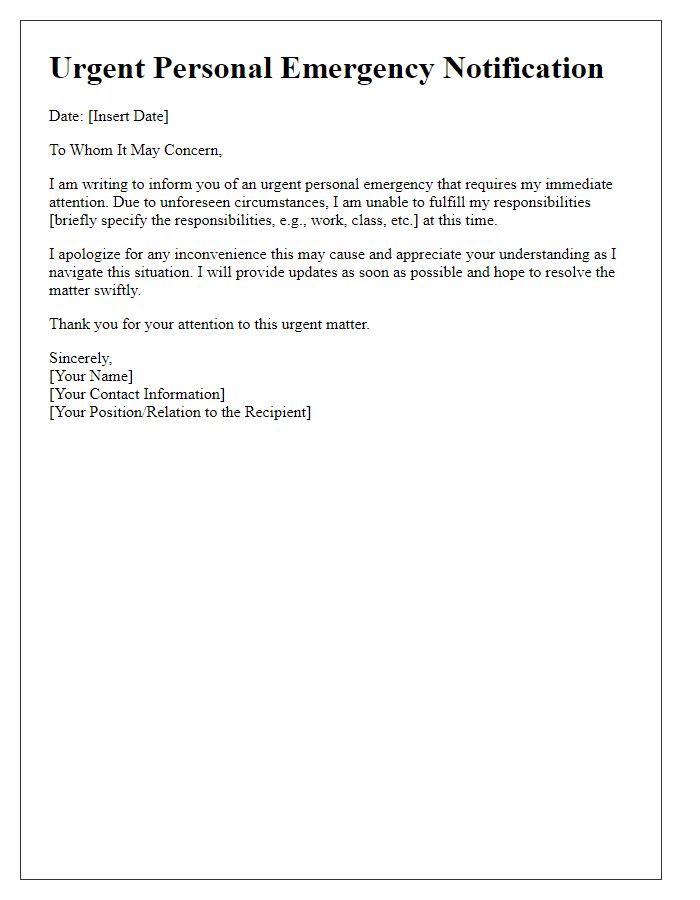
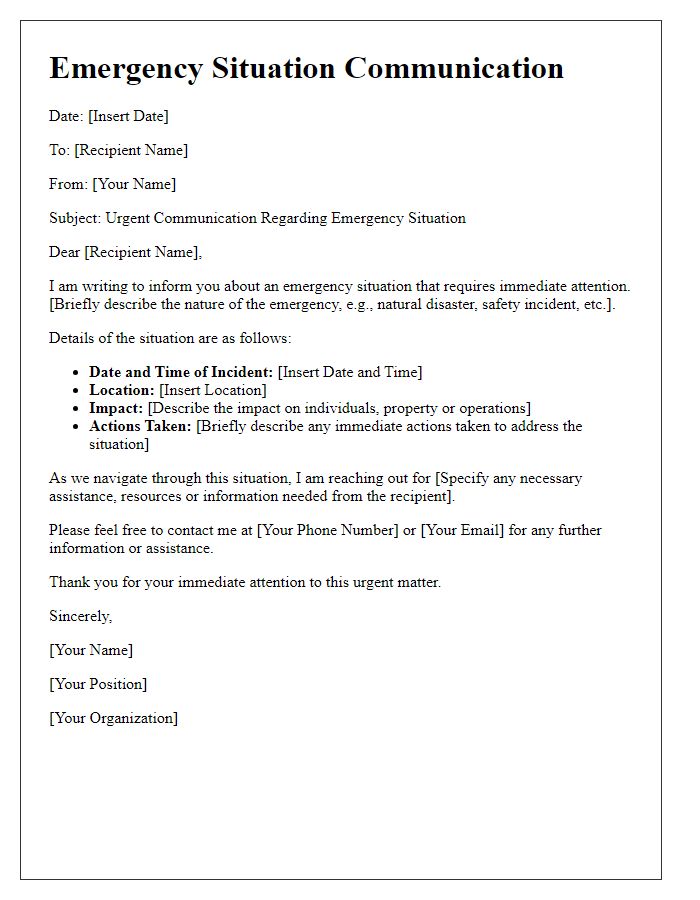
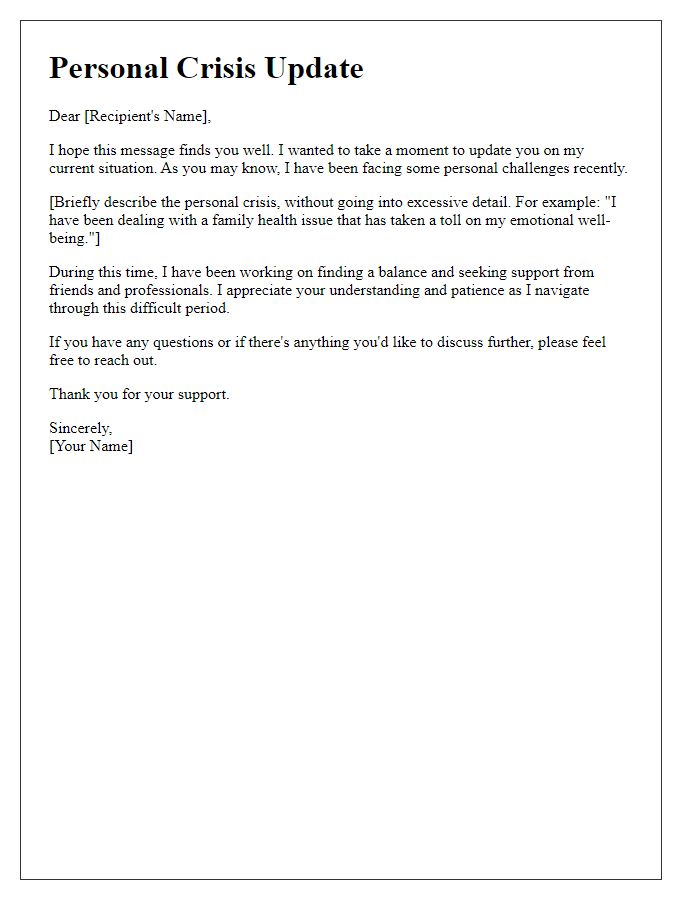
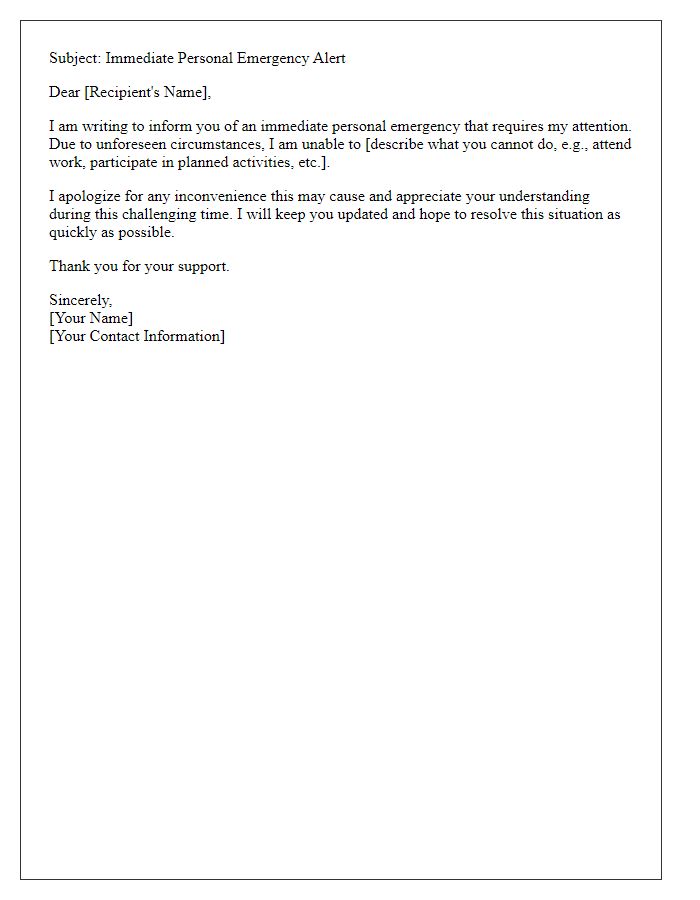
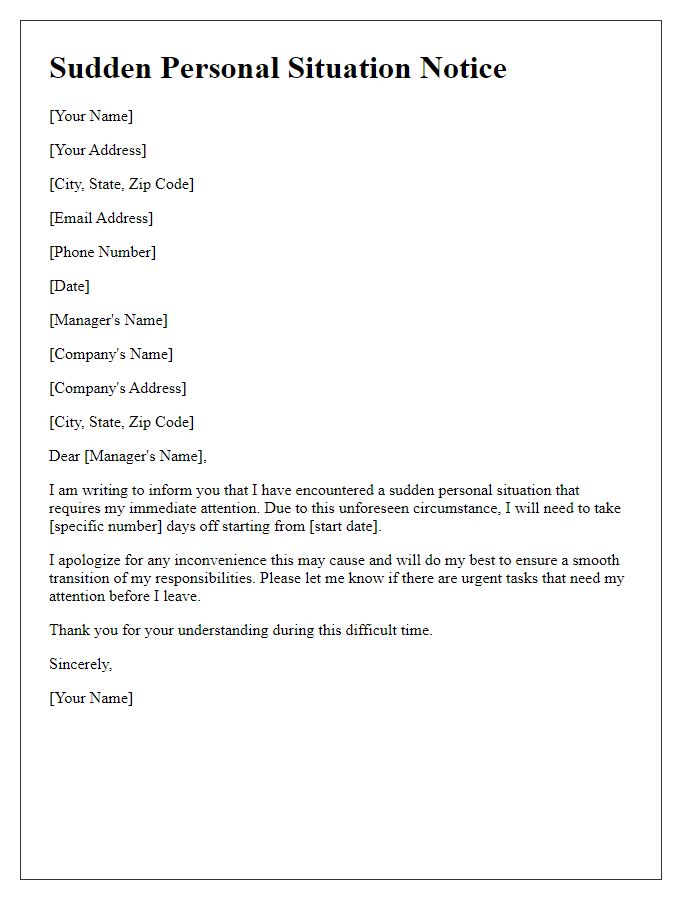
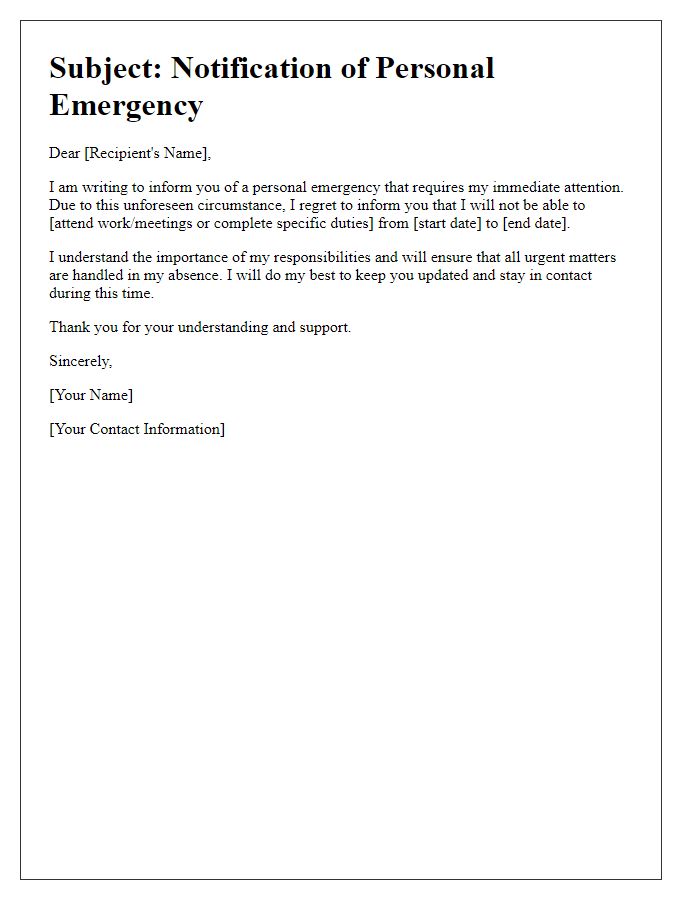
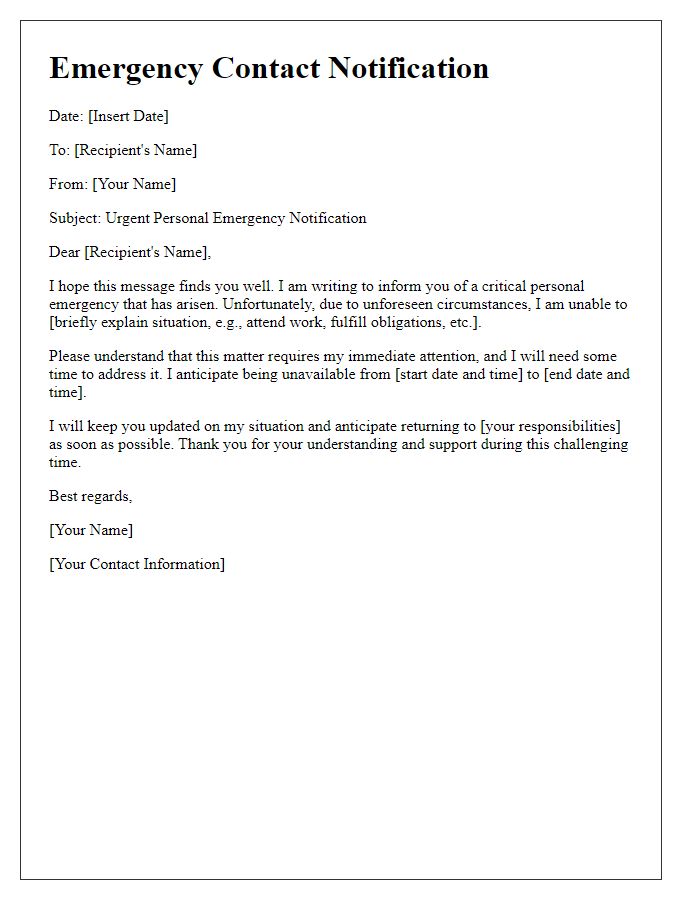
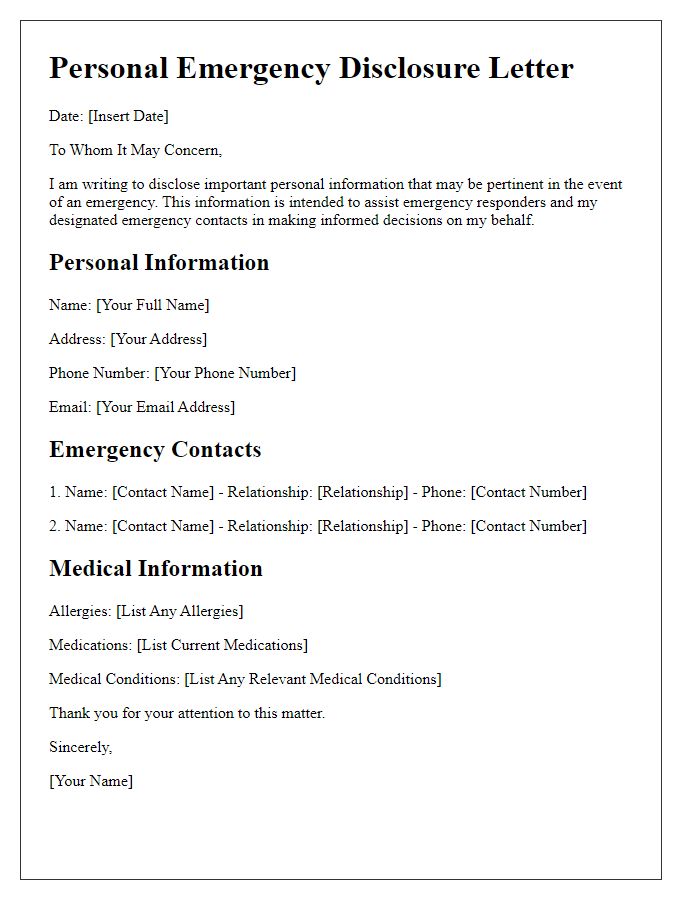
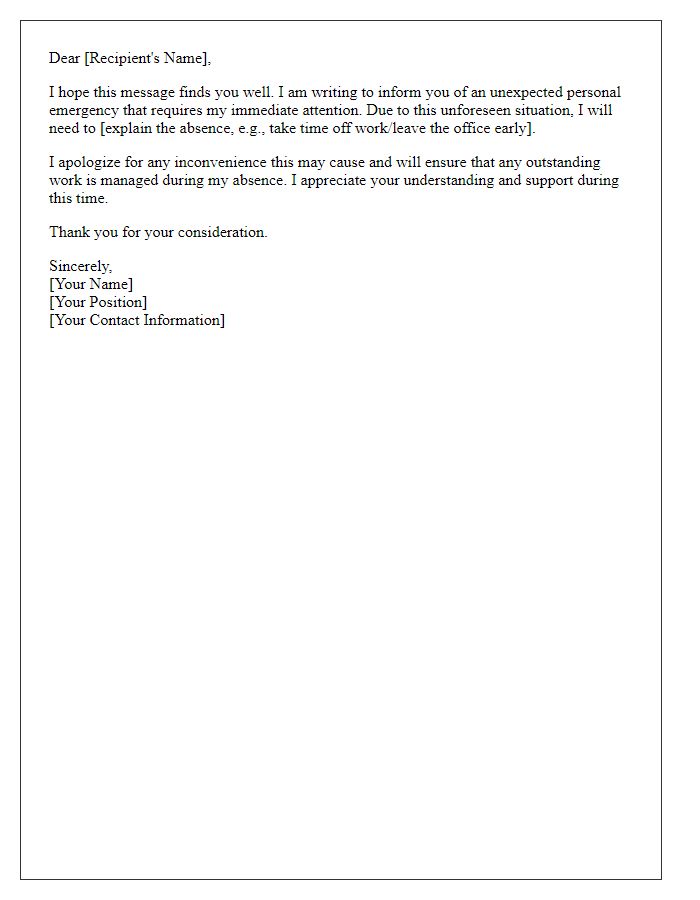
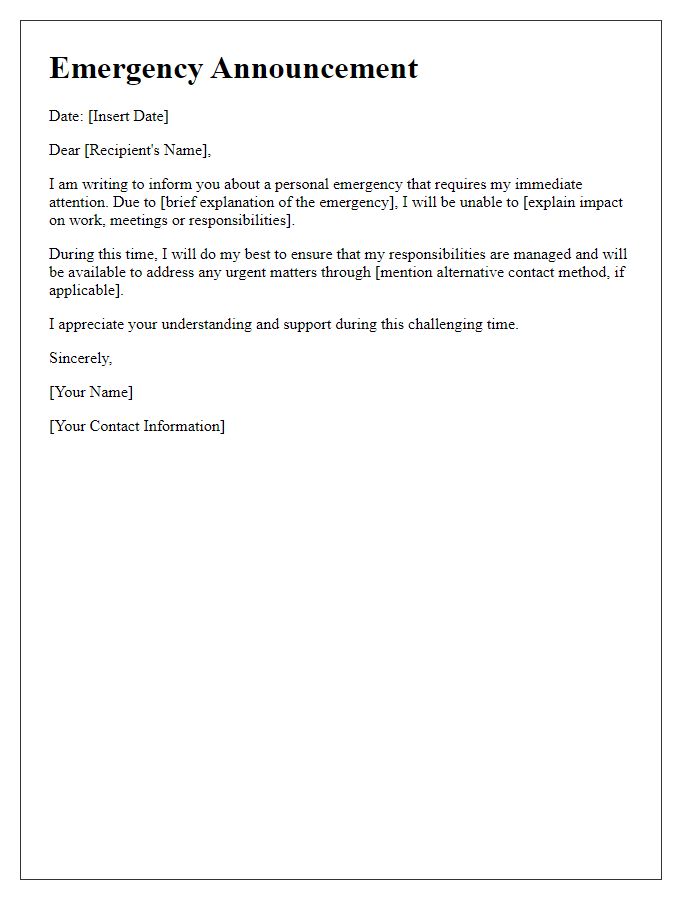

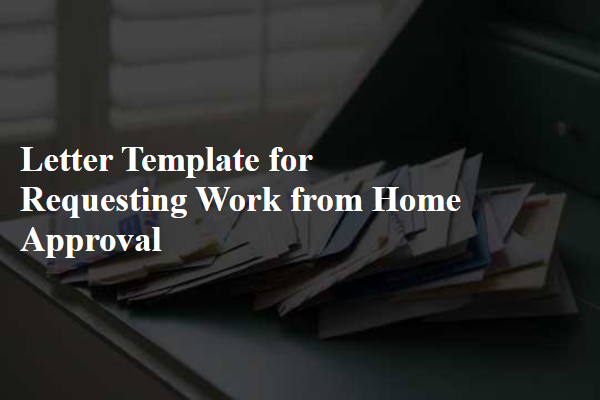
Comments